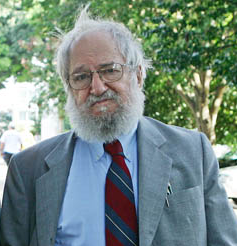Constructivism vs Constructionism
The distinction between constructivism and constructionism is based on the focus of each theory. Constructivism and constructionism are two educational and psychological theories that have been influenced by one another. Constructivism was founded by Piaget, while constructionism was founded by Papert. Both Paget and Papert believed that knowledge is created by the child in the active process of interacting with the surrounding world. Constructivism emphasizes the interests and abilities of children to achieve specific educational goals at different ages. In contrast, constructionism focuses on the manner of learning. This highlights that these two theories are different from one another. This article will present the differences between the two theories, constructivism and constructionism, and provide a clear understanding of each theory.
What is Constructivism?
Jean Piaget founded educational constructivism. According to him, constructivism opens a gateway to the interests and abilities of children to achieve specific educational goals at different ages. It studies how children engage in different tasks and how these change over time. Piaget believed that children have their views about the world. These are very coherent views that are constantly changing as children interact with others and acquire new experiences.
Piaget believes that children do not change their views just because they are being taught. In this sense, teaching is an indirect process. The child interprets what is being taught based on their experiences and knowledge. He further points out that the knowledge gained by the child through teaching is not merely information being communicated; it has to be experienced.
However, some critics argue that Piaget’s theory has flaws, as it does not capture certain important aspects such as the impact of context, individual features, media, etc.
What is Constructionism?
Seymour Papert founded constructionism, which was based on Piaget’s constructivism. However, unlike constructivism, constructionism focuses on the manner of learning, also referred to as the art of learning. Papert was interested in studying the conversation between the learner and the artifacts, leading to self-directed learning.
Papert’s theory is considered broader and consists of a greater focus than constructivism because it allows us to understand the formation and transformation of ideas in different contexts. It also presents how it occurs in the individual mind of the learner. In this sense, one can identify a clear shift between the two theories, as constructionism highlights the individual rather than universals.
Papert believed that the expression of individual feelings was vital, as it allows them to be shared and affects our ideas. He believed this influenced the self-directed learning process of the learner. He further stated that knowledge is grounded in contexts.
What is the difference between Constructivism and Constructionism?
• Definitions of Constructivism and Constructionism:
• Constructivism highlights the interests and abilities of children to achieve specific educational goals at different ages.
• Constructionism focuses on the manner of learning.
• Founders:
• Constructivism was founded by Jean Piaget.
• Constructionism was founded by Seymour Papert.
• Connection:
• Constructionism was developed through the ideas of constructivism.
• Scope:
• Constructionism is broader and consists of a greater focus than constructivism.
• Focus:
• Constructivism does not focus on context and individual differences.
• Constructionism focuses on context and individual differences.
• Attention:
• In constructivism, attention is paid to the abilities of children at different developmental stages.
• In constructionism, attention is paid to individual learning.
Key Takeaways
- Constructivism, founded by Jean Piaget, focuses on the interests and abilities of children to achieve specific educational goals at different ages.
- Constructionism, founded by Seymour Papert, emphasizes the manner of learning and pays attention to context and individual differences.
- Constructionism is broader in scope and was developed through the ideas of constructivism.
